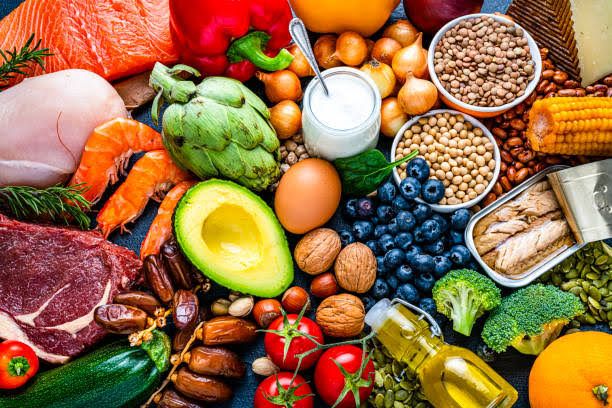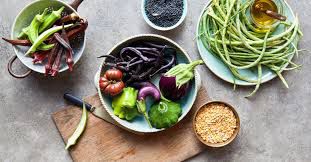ARTICLES
11 Nutrient-Dense Foods That Can Replace Your Daily Multivitamin
11 Nutrient-Dense Foods That Can Replace Your Daily Multivitamin

While multivitamins are a convenient part of many people’s daily routine, relying on whole foods for essential nutrients may actually be a smarter — and safer — strategy. According to health experts, most healthy adults who maintain a balanced diet don’t need to depend on supplements to meet their nutritional needs.
Research suggests that multivitamins may offer limited benefits unless recommended by a doctor. In many cases, your body can absorb and use nutrients more effectively when they come from whole foods rather than pills. Instead of reaching for a multivitamin, consider adding these nutrient-rich foods to your diet:
1. Avocado
Creamy, versatile, and loaded with nutrients, avocados offer heart-healthy fats, fiber, and a wide range of vitamins and minerals. Just one-third of an avocado contains:
- Copper: 0.2 mg (20% DV)
- Vitamin B5: 1 mg (20% DV)
- Folate: 40 mcg (10% DV)
Avocados are also packed with vitamins C, E, K, potassium, and magnesium — plus about 3–4 grams of gut-friendly fiber per serving.
2. Salmon
Salmon is one of the most nutrient-dense proteins you can eat. Just 3 ounces of wild-caught salmon provides:
- Vitamin B12: 3.8 mcg (158% DV)
- Vitamin D: 14 mcg (71% DV)
- Niacin (B3): 8.6 mg (54% DV)
It’s also rich in omega-3 fatty acids, which are linked to brain and heart health. A single serving gives you 1–2 grams of omega-3s — almost your full daily requirement.
3. Red Bell Peppers
These bright veggies are an excellent source of vitamin C. Just half a cup of raw red bell pepper contains:
- Vitamin C: 142 mg (160% DV)
- Vitamin B6: 0.3 mg (23% DV)
- Vitamin A: 117 mcg (13% DV)
Red bell peppers are also rich in antioxidants and phytonutrients that help fight inflammation.
4. Raspberries
Sweet and satisfying, raspberries are loaded with fiber and antioxidants. One cup offers:
- Vitamin C: 32 mg (43% DV)
- Fiber: 8 g (32% DV)
They’re naturally low in calories and can help support digestion while offering a mild boost to the immune system.
5. Spinach
This leafy green is a powerhouse of nutrients. Two cups of raw spinach provide:
- Vitamin K: 290 mcg (241% DV)
- Vitamin A: 282 mcg (32% DV)
- Folate: 116 mcg (30% DV)
- Manganese: 0.8 mg (35% DV)
Spinach also contains potassium, magnesium, iron, and antioxidants like quercetin. It’s low in calories but packed with benefits.
6. Eggs
A perfect breakfast staple, eggs deliver both protein and essential vitamins. One cooked egg contains:
- Biotin (B7): 10 mcg (33% DV)
- Choline: 147 mg (27% DV)
- Vitamin B12: 1.5 mcg (19% DV)
The yolk is especially nutrient-rich, offering vitamin D, antioxidants, and healthy fats.
7. Kiwis
These small fruits are big on nutrition. One medium kiwi provides:
- Vitamin C: 64 mg (71% DV)
- Vitamin E: 1.1 mg (7% DV)
Kiwis are antioxidant powerhouses, helping reduce inflammation and protect cells from damage.
8. Sardines
Affordable and shelf-stable, sardines are a nutrient-dense pantry essential. One can (3.75 oz, bone-in) offers:
- Calcium: 325 mg (25% DV)
- Selenium: 45 mcg (82% DV)
- Zinc: 1.1 mg (10% DV)
They’re also rich in omega-3s, vitamin D, B vitamins, and iron — making them an excellent choice for bone and heart health.
9. Potatoes (with Skin)
Often underestimated, potatoes provide several important nutrients when eaten with the skin. One medium baked potato delivers:
- Potassium: 952 mg (35% DV)
- Vitamin B6: 0.6 mg (35% DV)
- Vitamin C: 15 mg (20% DV)
- Fiber: About 4 g
Potatoes also offer complex carbs for sustained energy and are surprisingly filling.
10. Pistachios
Pistachios are among the most nutrient-rich nuts. One ounce (roasted, unsalted) contains:
- Copper: 0.3 mg (40% DV)
- Manganese: 0.3 mg (20% DV)
They also supply B vitamins, magnesium, iron, and plant-based antioxidants like lutein and zeaxanthin, which support eye health.
11. Asparagus
This spring vegetable is low in calories and rich in vitamins. Four cooked spears provide:
- Vitamin K: 30 mcg (25% DV)
- Folate: 89 mcg (22% DV)
Asparagus also contains fiber, vitamin C, and small amounts of protein — all of which contribute to satiety and nutrient absorption.
If you’re aiming to improve your diet, focus on variety and include more of the foods listed above. They’re nature’s way of delivering daily nutrition — no pill required.
Discover more from 9jaPolyTv
Subscribe to get the latest posts sent to your email.

 POLYTECHNIC NEWS17 hours ago
POLYTECHNIC NEWS17 hours agoOGITECH Makes History with First-Ever Campus Security Workshop to Boost Student Safety

 POLYTECHNIC NEWS17 hours ago
POLYTECHNIC NEWS17 hours agoConvocation Countdown: Acting Rector Flaunts Achievements at Adeseun Ogundoyin Polytechnic

 ARTICLES19 hours ago
ARTICLES19 hours agoDoes EasyBuy VIP Loan Defame or Call Contacts? (Honest Review)

 POLYTECHNIC NEWS3 hours ago
POLYTECHNIC NEWS3 hours agoOGITECH Secures ICAN Partnership: Students Set to Graduate as Chartered Accountants


























